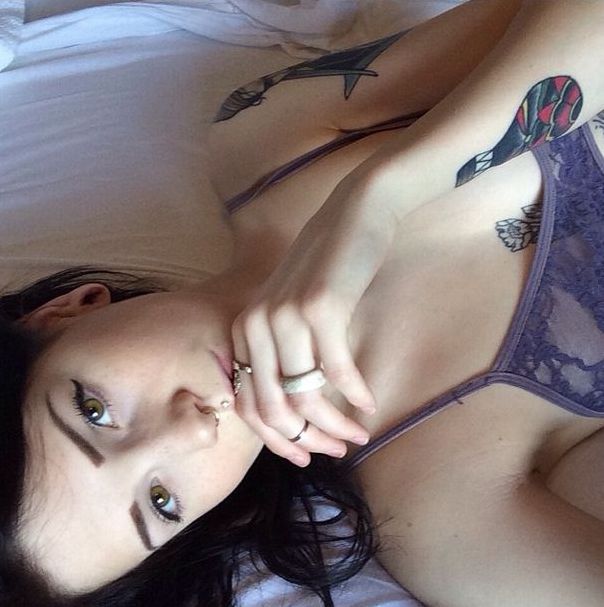EMO Girl
|
Sunny Day Real Estate formed in Seattle during the height of the early-1990s grunge boom. In contrast to Jawbreaker, its members were accomplished musicians with high-quality gear, lofty musical ambitions, intricate songwriting, and a sweeping, epic sound. Frontman Jeremy Enigk sang desperately, in a falsetto register, about losing himself and subsuming himself in something greater, often using haphazard lyrics and made-up words. The band's debut album Diary (1994) was over-the-top and romantic, and the music video for "Seven" received airplay on MTV. The band's ambitious sound challenged other bands to reach further with their own music in sentiment, instrumentation, and metaphor, and represented a generational shift between grunge and emo. Other emo-leaning punk bands soon followed suit, and the word "emo" began to shift from being vague and undefined to referring to a specific type of emotionally overbearing music that was romantic but distanced from the political nature of punk rock. Sunny Day Real Estate fell apart after Diary, as Enigk became a born-again Christian and launched a solo career while the other members drifted into new projects such as the Foo Fighters. They released three more albums through a series of breakups and occasional reunions, but are remembered primarily for the promise of their debut and the shift it engendered in the tastes of underground rock fans.
• Underground popularity: mid 1990s
In the mid-1990s the American punk and indie rock movements, which had been largely underground since the early 1980s, became part of mainstream culture. After Nirvana's success, major record labels capitalized on the popularity of alternative rock and other underground music by signing numerous independent bands and spending large amounts of capital promoting them. In 1994, the same year that Jawbreaker's 24 Hour Revenge Therapy and Sunny Day Real Estate's Diary were released, pop punk acts Green Day and The Offspring had mutiplatinum successes with their respective albums Dookie and Smash. In the wake of the underground going mainstream, over the next several years emo as a genre retreated, reformed, and morphed into a national subculture, then eventually something more. Drawing inspiration from bands like Jawbreaker, Drive Like Jehu, and Fugazi, the new sound of emo was a mixture of hardcore's passion and indie rock's intelligence, bearing the anthemic power of punk rock and its do-it-yourself work ethic but with smoother songs, sloppier melodies, and yearning vocals. Many of the new emo bands originated from the Midwestern and Central United States, such as Braid from Champaign-Urbana, Illinois, Christie Front Drive from Denver, Colorado, Mineral from Austin, Texas, Jimmy Eat World from Mesa, Arizona, The Get Up Kids from Kansas City, Missouri, and The Promise Ring from Milwaukee, Wisconsin. According to Andy Greenwald, "This was the period when emo earned many, if not all, of the stereotypes that have lasted to this day: boy-driven, glasses-wearing, overly sensitive, overly brainy, chiming-guitar-driven college music."
On the east coast, New York City-based Texas Is the Reason bridged the gap between indie rock and emo in their brief three-year lifespan by melding the melodies of Sunny Day Real Estate to churning punk musicianship and singing directly to the listener. In New Jersey, Lifetime gained a reputation as a melodic hardcore act, playing shows in fans' basements. Their 1995 album Hello Bastards on rising independent label Jade Tree Records fused hardcore with emo's tunefulness, turning its back on cynicism and irony in favor of love songs. The album sold tens of thousands of copies and the band inspired a number of later New Jersey and Long Island emo acts such as Brand New, Glassjaw, Midtown, The Movielife, My Chemical Romance, Saves the Day, Senses Fail, Taking Back Sunday, and Thursday.
|
|









